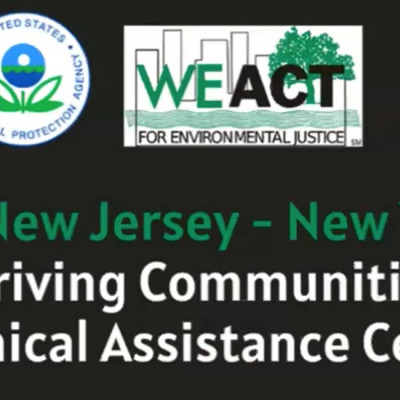October 1, 2024
September 2024 at Policy Integrity
- “Emissions Accounting to Accelerate Decarbonization” — Recap and Videos
- How Significant Is the New CFTC Carbon Credit Derivatives Guidance?
- 10/16 Virtual Training: Federal Accountability and Environmental Justice Obligations
- SC-GHG Advocacy Is Getting Noticed
- Policy Integrity Welcomes Six New Fellows
-
“Emissions Accounting to Accelerate Decarbonization” — Recap and Videos
On September 24th, along with NYU Tandon’s Sustainable Engineering Initiative, Policy Integrity hosted a conference focused on emissions accounting practices and their impact on efforts to address climate change. The event brought together a wide array of stakeholders to discuss ways of measuring the clean-energy content or carbon dioxide emissions linked to a particular unit of electricity consumption. These measurements are important because they determine whether clean-energy-procurement policies and corporate commitments actually reduce emissions. Lily Batchelder, former Assistant Secretary of the Treasury for Tax Policy, gave keynote remarks, discussing how the Inflation Reduction Act’s clean-energy tax credits were designed with emissions accounting in mind. Several speakers also discussed current corporate emissions-accounting efforts. For those who missed the conference or wish to revisit the insights, conference panel recordings are here.
-

How Significant Is the New CFTC Carbon Credit Derivatives Guidance?
When the Commodity Futures Trading Commission (CFTC) approved new guidelines for exchanges that list carbon credit derivatives, the move was touted as a substantial step towards improving voluntary carbon market integrity. But this assessment is likely overstated. As our Erin Shortell explained in a blog post, the guidance is extremely limited in its reach and doesn’t apply to most of the core transactions in voluntary carbon markets, where buyers purchase carbon credits from climate-related project developers to offset their emissions. Instead, it applies only to financial products called “carbon credit derivatives” that are based on the price of carbon credits. Right now, there are only three such products traded on CFTC-regulated exchanges, and even these may not have to comply with the guidance, as it isn’t legally binding. To be sure, promoting integrity in the carbon credit derivatives markets is a step in the right direction. But, as this article that quotes Shortell underscores, there remains a long way to go before regulation reaches the most important parts of those markets in a meaningful way.
-

10/16 Virtual Training: Federal Accountability and Environmental Justice Obligations
On October 16th, Policy Integrity will host a training in which we will explore how environmental justice (EJ) is considered in regulatory processes across federal agencies and highlight ways that communities can engage in those processes. This training is part of a series that focuses on providing EJ communities with the tools to effectively engage with government at all levels. Participants will learn how rules and regulations are created by different agencies to protect the environment, public health, and public welfare. A background in EJ law or policy is not required to attend the training. This event and series are presented by Policy Integrity in its role as a coalition partner in EPA's Region 2 Thriving Communities Technical Assistance Center.
-

SC-GHG Advocacy Is Getting Noticed
Ever since EPA finalized its updated values for the social cost of greenhouse gases (SC-GHG) last December, Policy Integrity has urged other agencies and states to adopt these robust and scientifically-supported numbers. Recently, these efforts have garnered attention, both from agencies and the media. In an InsideEPA article about our SC-GHG advocacy, our Jason Schwartz is quoted as saying, “I think it’s great for agencies to just start using EPA numbers, there’s no need to wait for the [interagency] working group to do anything else on that front.” The article also highlighted similar recommendations from our recent blog post on this topic, including the idea that other federal agencies dealing with energy and environmental issues should start using EPA’s metrics in their decisionmaking. One such entity — the Army Corps of Engineers — seemed to do just that when it cited Policy Integrity’s online SC-GHG calculator (which uses EPA’s values) in a recent environmental impact statement.
-
Policy Integrity Welcomes Six New Fellows
Policy Integrity recently welcomed a new cohort of economic and legal fellows. Pello Aspuru joins us from the economics Ph.D. program at the Center for Monetary and Financial Studies in Madrid, Spain, where he specialized in the political economy of the energy transition. Jack Jones recently earned his J.D. from Columbia Law School, where he served as Editor-in-Chief of the Columbia Journal of Environmental Law. Kelly McGee arrives at Policy Integrity after two federal judicial clerkships, which followed her graduation from the University of Chicago Law School. Leila Safavi earned her Ph.D. in agricultural and resource economics from the University of California, Berkeley, and her research combines applied econometrics with novel data collection to study the impact of energy policy on firm behavior. Mythili Vinnakota, whose research focuses on the intersection of environmental economics and public finance, joins us from the Harris School of Public Policy at the University of Chicago, where she recently earned her Ph.D. Finally, Kate Welty arrives following a judicial clerkship and time at the University of Michigan Law School, during which she worked with Earthjustice's Toxic Exposure and Health Program. We are thrilled to welcome each of these new fellows, and are grateful to have their unique skillsets and perspectives at Policy Integrity.


